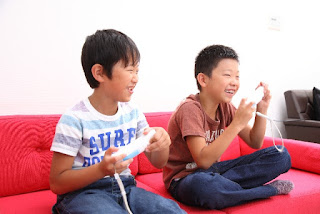Whether the internet use and computer gaming are harmful to the growth of children has been repeatedly debated. Susan Greenfield is one of the persons who claim the potential harm of such new technologies.
In her book, "Mind Change: How Digital Technologies Are Leaving Their Mark on Our Brains," she seems to have presented several hypotheses that the internet use and computer gaming would change children's brain adversely. I have not read this book yet, but according to an editor of British Medical Journal, it does not deserve to be tried.
The BMJ: The debate over digital technology and young people
The author criticized Greenfield's book directly, which is not so frequent in an editorial. Susan took typical mistakes such as confusion between correlation and causation and giving undue weight to anecdote and poor-quality studies, according to the author. And she is considered not have published a paper in peer-reviewed journals about this topic. It is common in doubtful science writers.
Medical Daily: Digital Technology Is Not As Harmful For Kids As It Is Made To Seem, According To Scientists
After all, the conclusion of the author is that her claims are not based on the evidence. The author is not the only person criticizing her for the lack of the evidence, although she insists that there are all of evidence included in her book.
The Independent: Susan Greenfield: After the science, the fiction
As I have not read her book, I cannot judge her claims properly. Nonetheless, one of her claims that excessive use of digital technology can change your children into autism is ridiculous. It is widely recognized that autism is a neurodevelopmental disorder, not a result of maltreatment of the parents. Many false scientists believe such idea, also in Japan, and are eager to mislead parents of autistic children.
It is unfortunate that the editorial itself is also doubtful to have been peer-reviewed in a strict way. As far as my understanding, it seems rational and flawless.
In this editorial, some issues are also mentioned such as cyberbullying and computer gaming with violent scenes. These topics should be further investigated. In addition, it is noteworthy that excessive use of the internet is likely to be harmful in the sense of a shortage of physical exercise. It is substantially apart from the adverse effect of digital technology.
By the way, I have read another book about this issue. In Harvard University, research with a large sample size was conducted to identify the influence of computer gaming to children. As a result, children could recognize that the game was a fiction, different from military persons who played the gun simulator as a virtual reality. I think this study is rather trustworthy.
Amazon.com: Grand Theft Childhood: The Surprising Truth About Violent Video Games and What Parents Can Do

No comments:
Post a Comment